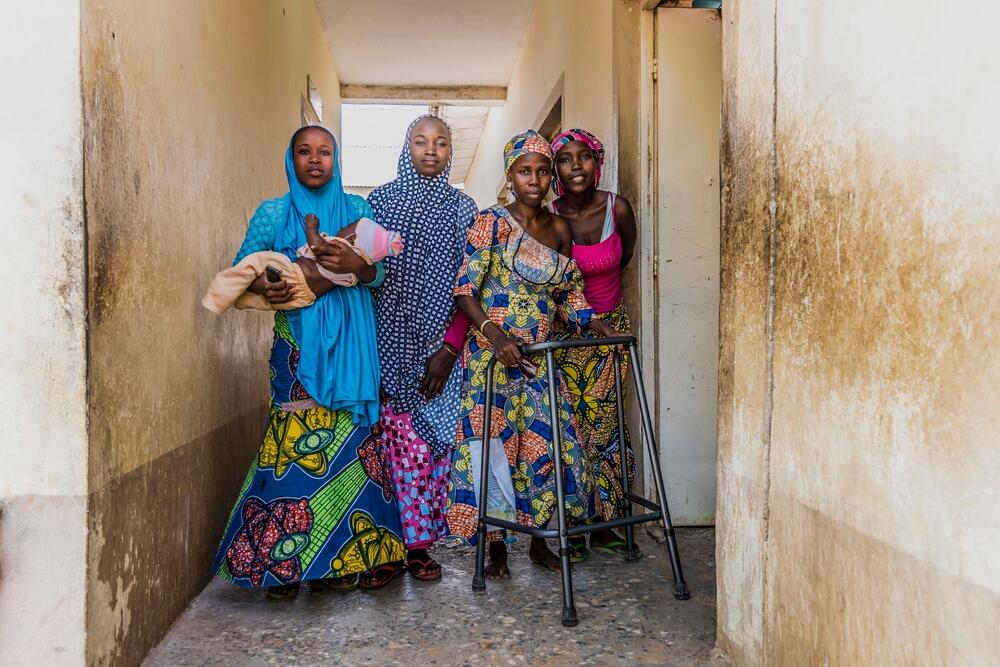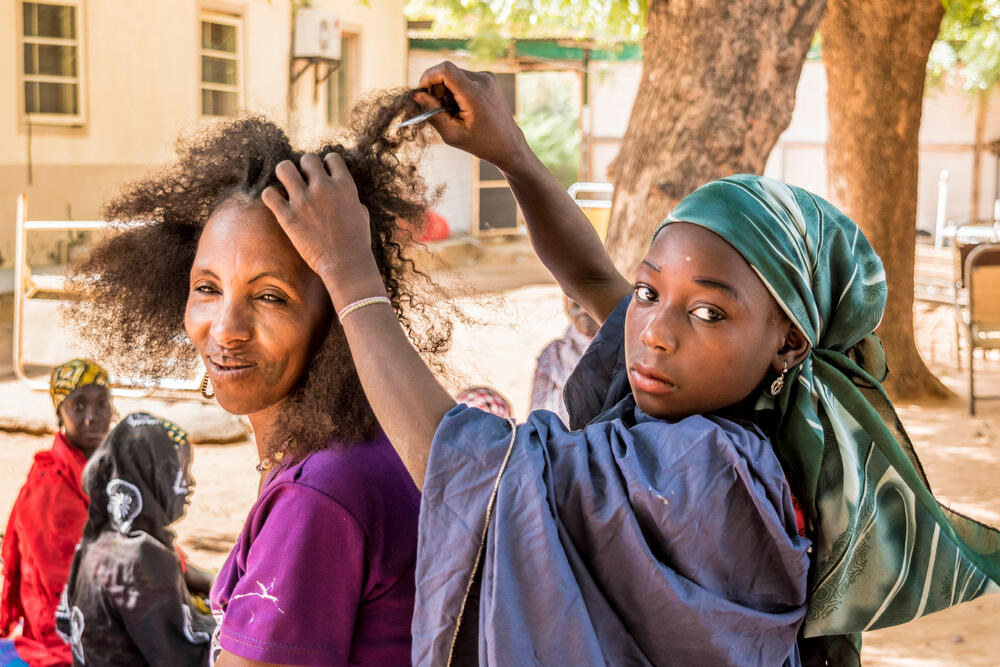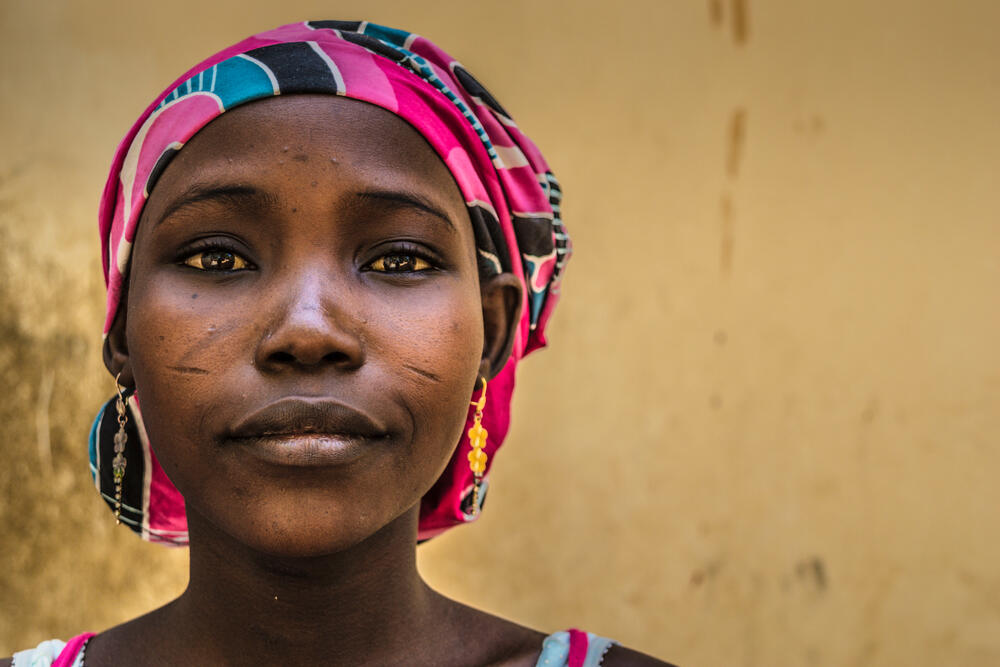Overcoming fistula in Nigeria: "These women have found their pride again"
Onyeka Martins Madueke works with patient data at MSF's fistula project in Nigeria. On the day of a special celebration for women being discharged from the clinic, he shares their story of resilience, joy, and recovery.
How do you know a happy person; their smiles or their tears? It all depends I guess.
While a smile and a hearty laugh are ready indications of a happy moment, tears shed for the same occasion could be questionable.
But then, when it is established that those tears are out of appreciation for the beautiful thing that has happened, it is easier to conclude that such an emotional outburst must have sprung from a deeper place – a place of soul-intoxicating joy.
A devastating injury
This is how I feel today - joyful to the point of tears, as I watch the number of women who are celebrating their final discharge from the MSF fistula clinic here in Jahun, a town in the north of Nigeria.
The radiant look on their faces is contagious, and all of us who are here to celebrate with them know why.
Fistula is a devastating injury which is almost always sustained in childbirth, after an obstructed labour.
This happens when the delivery of the baby has stopped – often because the baby’s head is too big to pass through the mother’s pelvis.
Without an emergency caesarean, the baby’s head can press against the wall of the birth canal, causing a hole or ‘fistula’ to form, connecting the vagina with the bladder or rectum.

Help us prepare for the next emergency
Months ago, following an improperly conducted or complicated delivery, these women woke to realise that their bodies had no control over urine discharge (in cases of vesico-vaginal fistula) and faecal discharge (in cases of recto-vaginal fistula). These fluids passed from the bladder or rectum, through the fistula, and now leaked constantly through their vaginas.
Consequently, the women needed to employ rags or towels to absorb them. People often consider the smell repulsive or embarrassing, and the women may have been excluded from their communities as a result.
Today, however, is different from those days, and the women at this celebration have found their pride again after they thought they had lost it.
“Staff become like family to these patients”
Almost, if not all, the patients who get admitted into the fistula ward are registered as married women. After a while, however, a number of them lose their marriages. Their husbands file for divorce while the women are still receiving treatment in hospital.
At this point, they can start to feel really unwanted; depression begins to sink in, and they begin to believe that everything is wrong with them – maybe a curse, or something worse.
This usually marks the beginning of a worrying psychological state, which endangers a patient’s speedy recovery.
The women at this celebration have found their pride again after they thought they had lost it.
The journey to recovery for these women who are cared for here at the MSF clinic is not always easy. It requires a lot of discipline and strict adherence to routine activities that form part of the treatment, like water-drinking and exercise, all supervised by the nurses and physiotherapist.
The friendly staff become like family to these patients and are often the reason most of them do not give up. The women diligently follow through with medication and therapy as they gradually regain continence or are made ready for surgery to repair their fistula.
Restored confidence
At first, not many of the patients admitted into the ward are convinced that they will one day regain the ability to control the discharge of urine or faecal matter, but eventually, it happens.
This is often a life-transforming experience for them. It seems to inspire a stronger conviction that all the seeming impossibilities that life often presents within the communities where they come from, can be overcome if approached with positivity.
At this point also, they themselves begin to realise that they were wrong at first. Everyone who gave up on them was wrong. They were neither incomplete nor cursed individuals.
Today, these discharged patients will travel back to their various homes with greater confidence than they entered the ward with.
It will be mostly smiles on their faces as they leave the hospital gates, but if I see tears in the eyes of any of them, I will identify it as that soul-intoxicating joyfulness that comes with the chance and freedom to live again without the stigma of fistula.
As I write, I think of how much it takes for MSF to bring so much care to the people here free of cost, and I feel strong emotions welling up in me. If I do not stop now, I may end up flooding my writing pad and laptop keys with tears of joy.
MSF in Nigeria
Nigeria With over 190 million inhabitants, Nigeria is the most populous country in Africa.
Nigeria also has one of the fastest-growing economies, which is based primarily on the petroleum industry. However, a decade-long conflict has devastated the northeast of the country. Thousands have been killed and nearly two million people have been uprooted since fighting broke out between the military and non-state armed groups.
Médecins Sans Frontières/Doctors Without Borders (MSF) has been responding to disease outbreaks and emergency health needs in Nigeria for many years, focusing on maternal and paediatric healthcare throughout the country and scaling up our activities in the northeast as vast numbers of people caught up in the conflict depend on aid to survive.


